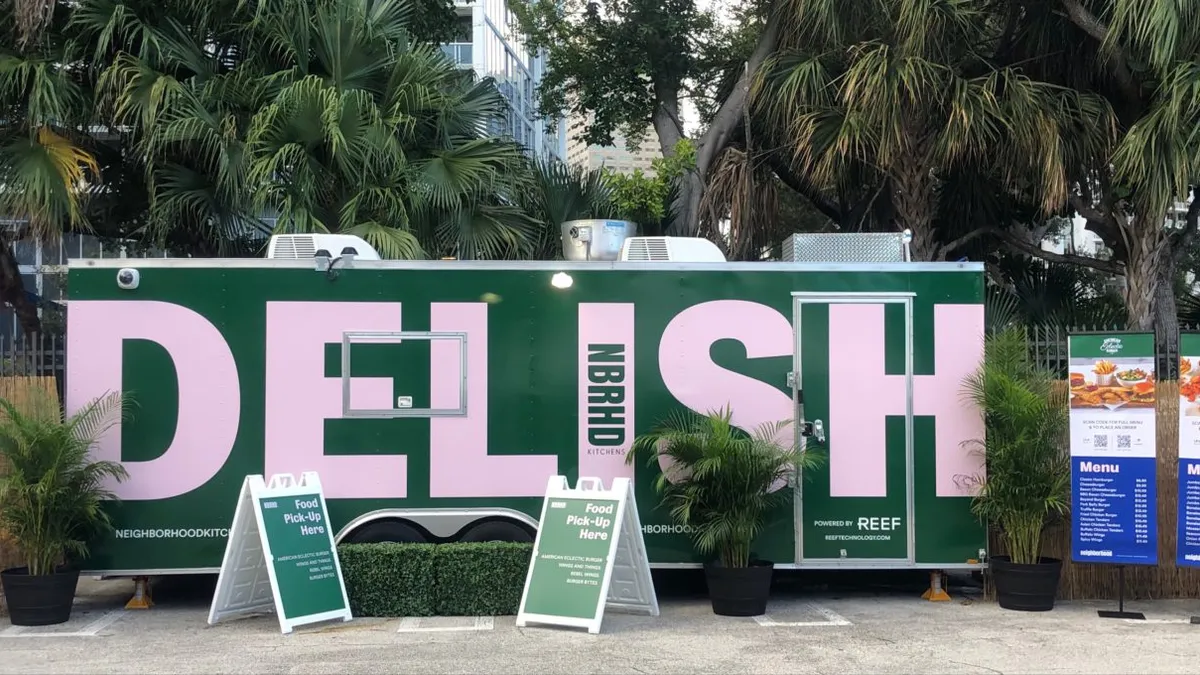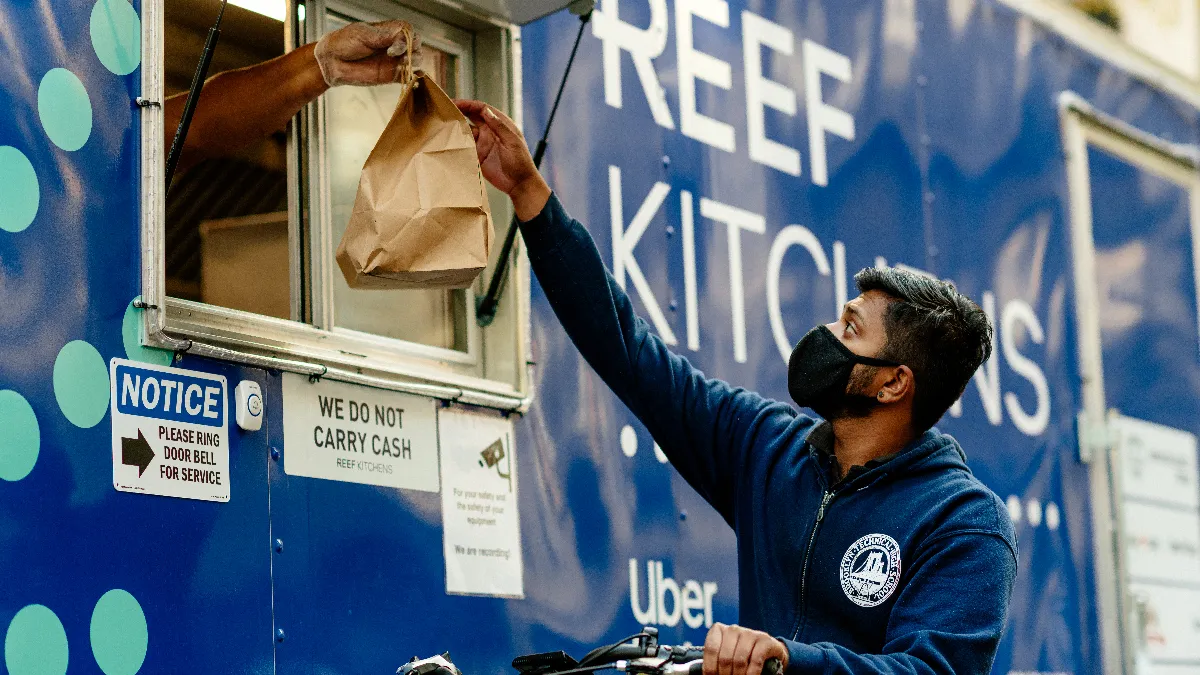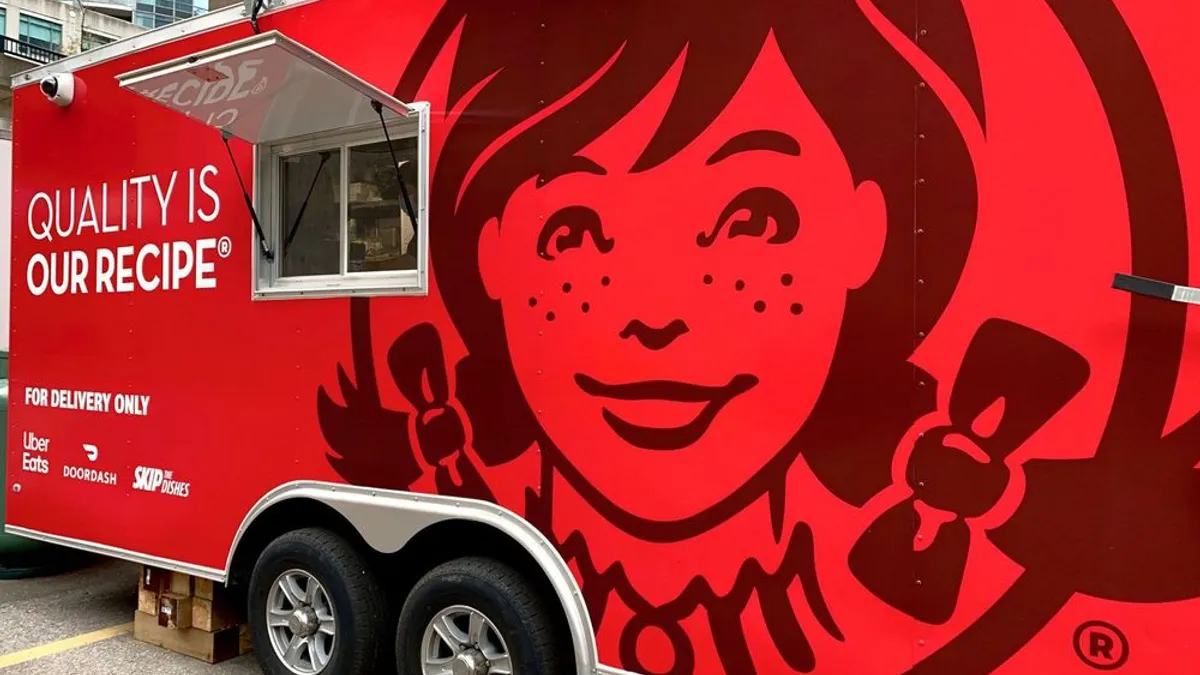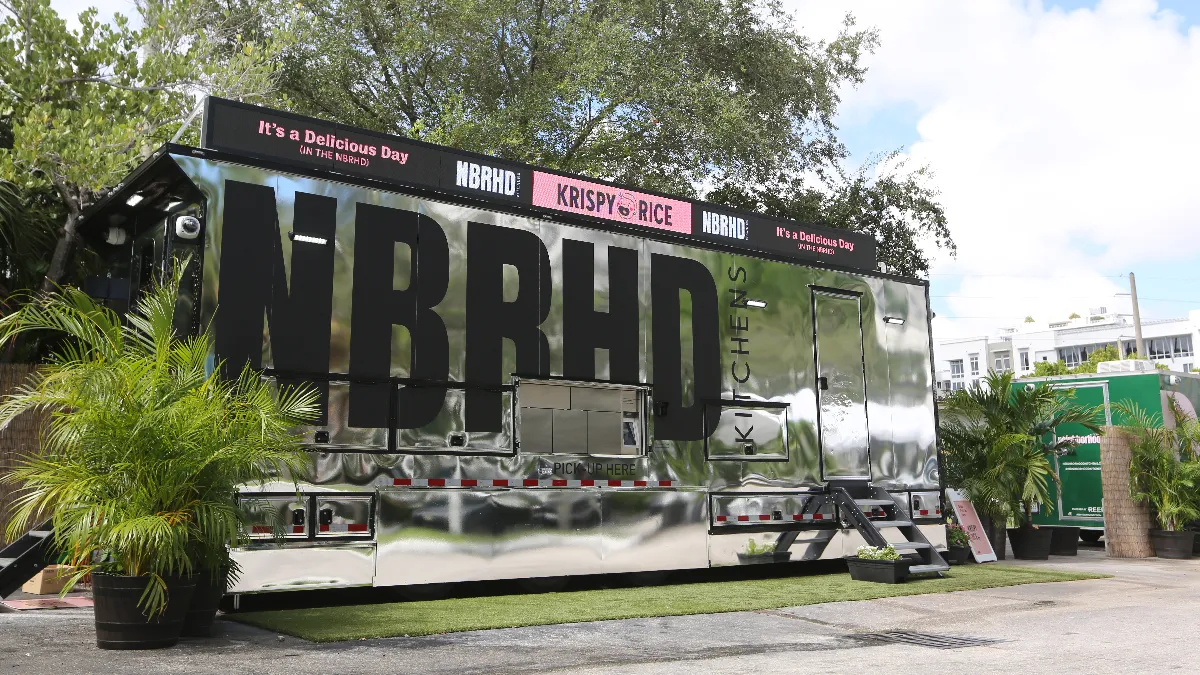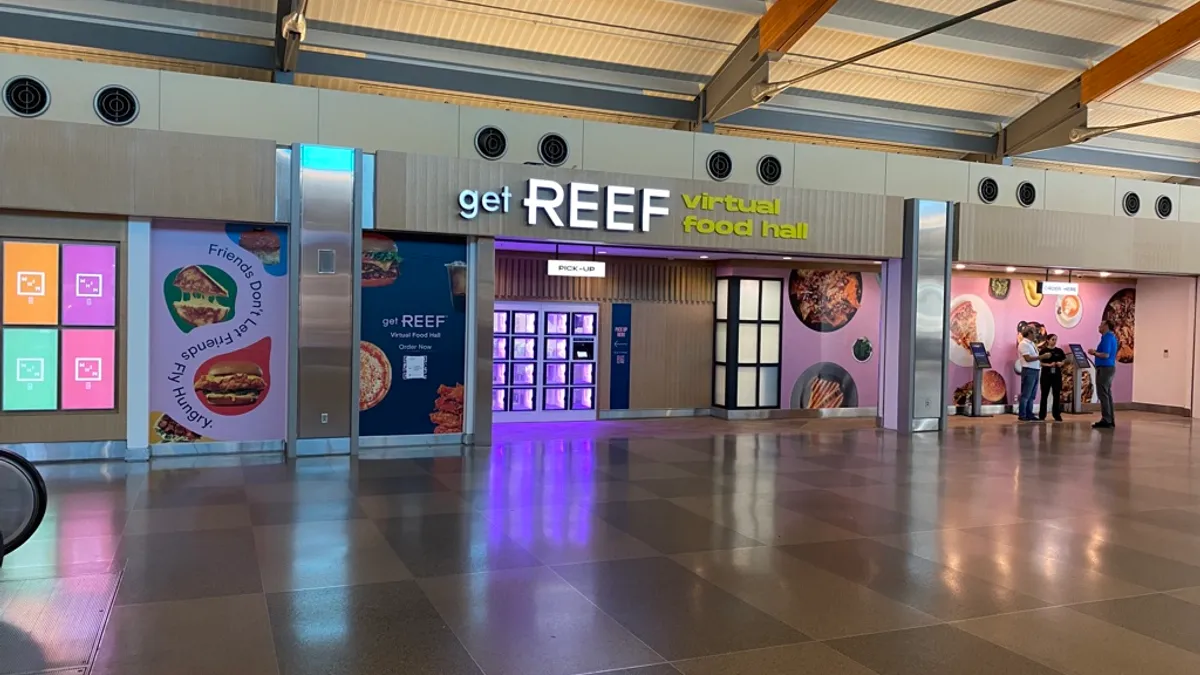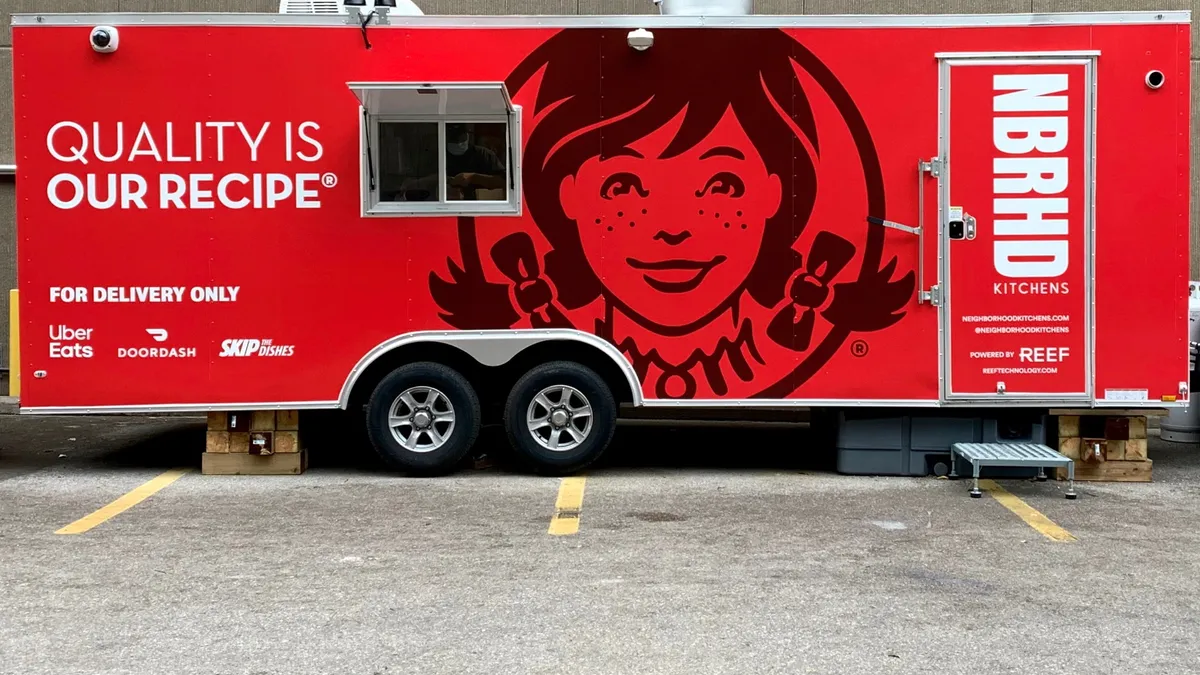Dive Brief:
- Reef Technology has voluntarily suspended operations of all of its modular kitchens in New York City after permits for these units expired, a company spokesperson said. The ghost kitchen platform's brick-and-mortar stores are still open in the market. The spokesperson did not disclose how many modular units had been operating in the city.
- The New York City Department of Health and Mental Hygiene said in a statement to Business Insider that the city and company were working to get the company in compliance: "The Health Department determined that multiple establishments operating under DBA (Doing Business As) 'Reef Neighborhood Kitchen' were violating numerous NYC health and safety requirements." Reef told Restaurant Dive the issue revolved around its permits. “No kitchens were shut down due to non-compliance," a spokesperson said. The health department didn't responded to a request for comment by press time.
- In a previous interview conducted before Reef's New York City closures were publicly reported, Reef Kitchens President Michael Beacham said the company likes to be proactive in compliance with local regulations, especially because permitting processes vary widely from city to city.
Dive Insight:
Reef's closures may reflect a gap between the ghost kitchen market's rapid growth and city regulations that can support these operations and keep them in check.
"A lot of times regulation isn't caught up to what we're doing," Beacham said. "We go out, meet with the local officials and say, we want to work with you, we’re going to partner with you to enter into the market."
Reef also stresses its commitment to public safety in conversations with local leaders before entering a market, Beacham said.
"REEF Kitchens is operating in compliance with New York City regulations from fully-permitted brick and mortar locations," a Reef spokesperson said. "We continue to work collaboratively with regulators on ways to permit our innovative model which seeks to reinvent urban spaces in a way that improves cities and neighborhoods with modular structures."
Though local governments have begun to crack down on third-party delivery platforms in recent years, regulating business practices ranging from commission fees charged to restaurants to treatment of gig workers, there has been little oversight of ghost kitchens.
In New York, the city council capped delivery fees and passed laws protecting delivery workers, for example, and Chicago recently sued DoorDash and Grubhub for deceptive business practices. Courts in California struck down Proposition 22, a ballot measure backed by ride-sharing companies and delivery aggregators that excluded gig workers from many legal protections.
This permitting issue could be a stumbling block for Reef's aggressive expansion plans. The company recently agreed to open 700 ghost kitchen units with Wendy's, 500 units with 800 Degree Pizza and 300 units with TGI Fridays. Two weeks ago, the company announced its acquisition of Bond, a New York-based e-commerce logistics company.
The company is able to quickly scale by anchoring its mobile kitchens in parking lots, giving partner restaurants easy access to major urban markets, like New York City.
"Throughout the United States and Canada, we're within 5 minutes of 70% of the urban population," Beacham said.
Ghost kitchens seem to have a long runway for expansion ahead, buoyed by strong demand for off-premise dining and diner concerns about COVID-19. But as Reef and rival ghost kitchen providers like Kitchen United and Cloud Kitchens grow, the segment may attract more scrutiny from local governments, as has been the case for third-party delivery firms.


